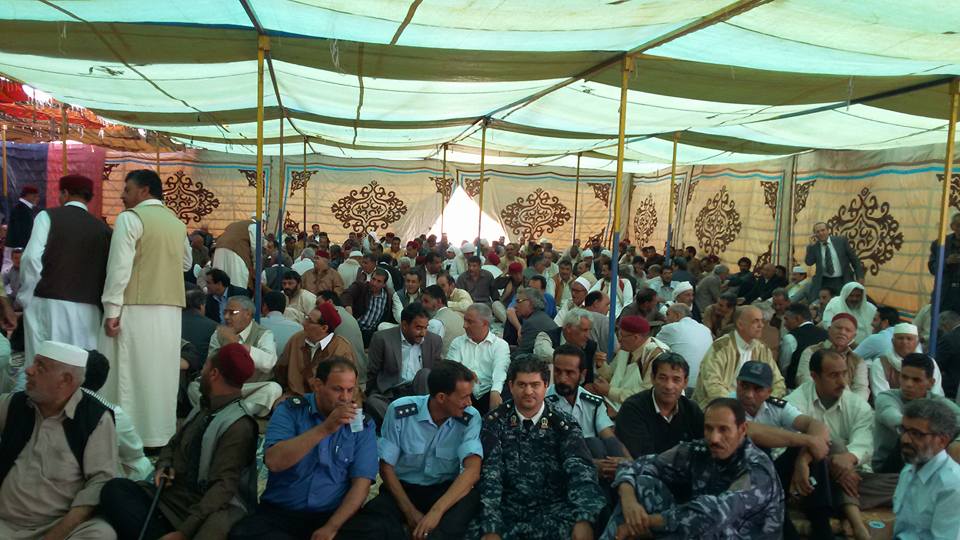By Ajnadin Mustafa.

Tripoli, 3 June 2015:
A meeting of eastern tribes in Gandula south of Beida yesterday demanded the 1951 constitution . . .[restrict]be re-instated. It also called for the army to given all the equipment and support it needs.
Accepting that that the House of Representatives (HoR) was the only body that could question or sack the government, the meeting expressed concerns about it, particularly allegation of corruption from the Audit Commission.
Delegates also complained about the Constitution Drafting Assembly. It was working too slowly and what it had produced so far, they said, was unacceptable. Instead, there was a near unanimous demand that the 1951 constitution under which Libya became an independent federal state, be revived.
The meeting looked at the situation beyond 21 October, widely believed to be the date when the HoR’s mandate expires. Fearing that there would then be a political vacuum in the country, delegates called on the HoR to produce a road map for the post-21 October period. It should be ready by July at the latest, they insisted.
The meeting issued seven recommendations:
- The government should answer questions about its performance and these be reported in the media;
- Full support had to be given to the army and the police;
- The HoR had to have full control over state institutions including the Central Bank of Libya;
- 4. A return of the 1951 Constitution;
- The HoR to pass an amnesty law (which would effectively nullify the Political Isolation Law and forgive those involved with the former regime); and
- The establishment of a committee comprising of representatives from the country’s municipal councils and of community elders which would work to ensure the other recommendations were implemented.
Hosted by the prominent eastern Barasa tribe, the meeting is seen as a response to the one that finally took place last week in Cairo but which many Libyan tribes boycotted.
Although the gathering was supported to draw representatives from the whole country, there was none from the south or east. This was largely because of dangers of travelling from one part of Libya to another, although a lack of sympathy among some tribes in the south and west linked to Libya Dawn and with little sympathy for those in the east supporting the HoR may also have played a part.
During the meeting, the Barasa tribe was noticeably keen to point out that the meeting was not, as had been alleged, a move by itself to try and dominate the Libyan political scene. “The main objective of the meeting is to build and support the army,” said Idris Yahya Arifi, a member of the tribe. [/restrict]









